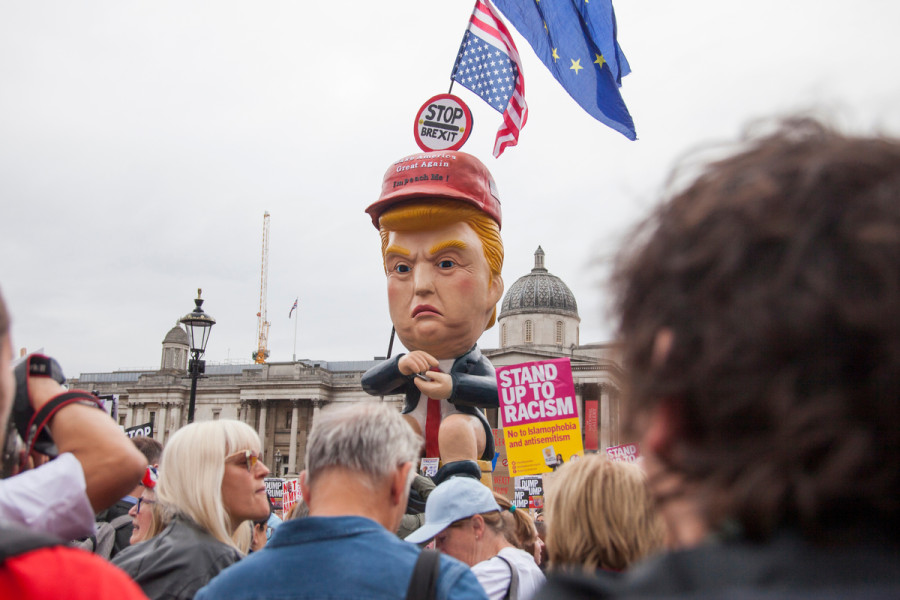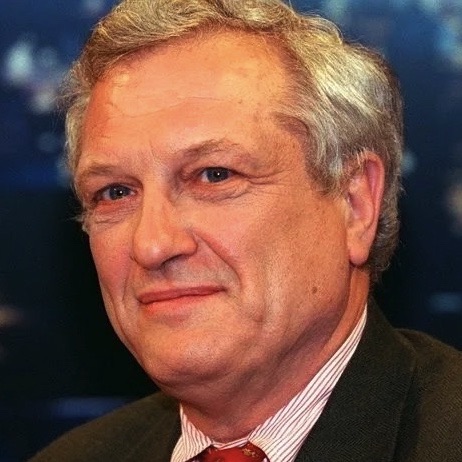Columns
Back to liberal American hegemony
In abandoning Trump’s America First doctrine, Biden will offer relief—but not a free lunch.
Josef Joffe
After four years of Donald Trump, his impending departure has sent hopes soaring. The Great Disruptor will be replaced by Joe Biden, an internationalist and institutionalist. He likes Europe and NATO, and, unlike Trump, he will treat America’s friends better than its traditional foes, including by honouring free trade. In the realm of security, he won’t clobber allies with threats amounting to ‘pay up, or we pull out!’ Multilateralism will again guide American policy. It will be back to liberal hegemony instead of Trump’s narrow-minded illiberal version.
‘Liberal’ implies a rules-based international order, the promotion of democracy, and open societies. Trump not only ditched these principles, but also demonstrated a penchant for the world’s strongmen, alternately flirting with the likes of Russian President Vladimir Putin and North Korean dictator Kim Jong-un. (Of course, the United States’ coddling of Saudi Arabia cannot be pinned on Trump; every administration has adhered to the time-honoured dictum: ‘He may be a bastard, but he’s our bastard’.)
Trump’s game was strictly zero-sum, especially on trade. This was a marked departure from the post-war American tradition, which stressed positive-sum outcomes in which both sides won. Trump dragged the world back to 19th-century power politics: states have no permanent friends, on this view, only permanent interests.
Naturally, we now hope for a restoration of the old liberal order. Some reconstruction will happen under Biden, a president schooled for nearly a half-century in the habits of America’s liberal empire. But note that Trump was not a total aberration. America’s shift toward ‘more for us’ and ‘less for them’ precedes the tweeter-in-chief.
Recall that while Trump ordered the withdrawal of thousands of US troops from Europe in 2020, Barack Obama’s administration (in which Biden served as vice president) did the same thing in 2012. For all of Trump’s Europe-bashing, Obama also groused that, ‘Free riders aggravate me’. It was he who initiated the retrenchment of US power in the Middle East, cutting troops in Afghanistan and Iraq while refusing to intervene against Bashar al-Assad’s chemical warfare in Syria.
When Trump promised to end America’s ‘forever wars’, he was merely copying Obama. It was his progressive predecessor who began to experiment with neo-isolationism, proclaiming that ‘it is time to focus on nation-building here at home’. Trump echoed that line by pledging a $1 trillion infrastructure programme—‘America First’ for the sake of domestic development and welfare.
The point is to show that America’s inward turn predates Trump, and will not be completely reversed under Biden. After all, protectionism—holding off foreign competition—appeals to both the right and the left. A generous immigration policy was fine as long as Democrats were in the opposition, depicting Republicans as mean-spirited nativists. But the Biden administration will hardly throw open America’s doors to the world’s huddled masses and tear down those parts of the Mexican border wall built under Trump.
Nor will the Biden administration abandon the power competition with China, whose own protectionist policies and appropriation of intellectual property are an abiding source of tension. The US will continue to assert itself in the western Pacific, where a classic rivalry between a rising land power and an established sea power is escalating. Democrats and Republicans are largely committed to Containment 2.0, corralling regional players such as India, Japan, South Korea, Taiwan, and Australia.
In the Middle East, Biden has already confirmed that he will try to restore the Iran nuclear deal, albeit not in the well-meaning ways of his old boss, Obama. The incoming administration will leave intact the new anti-Iran alliance between Israel and Arab Gulf states, and it will not repeat the Obama administration’s mistake of pursuing a ‘reset’ with Russia.
Since 2009, Putin’s Russia has turned into an expansionist power pressing on Europe, North Africa, and the Middle East. While Europeans cheer Biden’s victory, they should be prepared for renewed American demands that they increase their defence spending. By the same token, Germany should expect more US pushback against the Nord Stream-2 pipeline, a joint Russian-German project that bypasses Eastern Europe and increases Germany’s energy dependence on Russia.
Even as Biden presents himself as the anti-Trump, he will continue to pursue some of the same core US strategic interests when it comes to China, Russia, and commercial competition with Europe. Still, as the French say, it is the tone that makes the music. The Biden administration will bring a most welcome change to the style of US diplomacy, replacing Trump’s brutishness with well-mannered professionalism.
As in private life, respect and civility go a long way in international relations. Beyond improving the tone, Biden will pursue fewer zero-sum, and more positive-sum, games. He will focus on common interests and seek to restore American leadership by winning consent, rather than through boorish unilateralism. For example, he intends to stop the withdrawal of US troops from Europe ordered by Trump.
In abandoning Trump’s ‘America First’ doctrine, Biden will offer relief—but not a free lunch—to the rest of the Western world. As he wrote earlier this year in Foreign Affairs, his administration’s ‘policy agenda will place the United States back at the head of the table’, where it will lead ‘not just with the example of our power, but also with the power of our example’.
At the end of the day, however, power is power, and American power remains unrivalled across the board. All those who feared and despised Trump should be reassured by the 2020 election result. Biden will undoubtedly wield America’s mighty sword more judiciously, and with a friendlier face. Come Inauguration Day in January, America will be open for business once again. But the world should be prepared for some hard bargaining.
—Project Syndicate




 9.89°C Kathmandu
9.89°C Kathmandu















